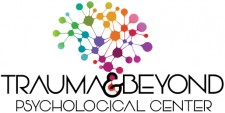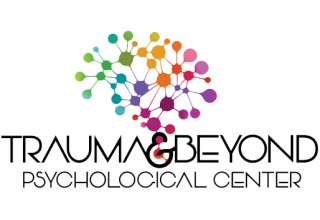Trauma and Beyond is Now Offering Training and Consultation to Provide Trauma Informed Care for Addiction Treatment and Mental Health Centers

LOS ANGELES, August 30, 2018 (Newswire.com) - Trauma and Beyond is now offering training and consultation to provide trauma informed care for addiction treatment and mental health centers.
“It’s important that treatment staff be able to recognize trauma," according to Dr. Joanne Barron, co-founder of Trauma and Beyond Center. “Often patients can be labeled as unwilling or non- compliant when, actually, they are engaging in self-protective trauma-based strategies for survival. When this is not recognized, patients are sometimes discharged for not cooperating or given diagnoses that may not be accurate or useful.”
Many addiction treatment centers are starting to recognize the importance of providing trauma informed care. Often some of the staff working in addiction treatment are in recovery from addiction and trauma. Training for all levels of staff increases the team unity and helps to provide continuity in the milieu. Staff will be trained to recognize and regulate their own triggers which may be activated by seemingly difficult clients, enabling staff to provide more.
Dr. Lynne Friedman-Gell concurs and added that “training staff in trauma informed care is essential for addiction treatment facilities because at the bottom of addiction and most mental illness, we will find trauma. Making sure that staff is sensitive to easily triggered nervous system hyper or hypo arousal and having strategies to help patients regulate these states is an important first step.”
Proper assessment is important in identifying patients with complex developmental trauma. Just asking whether patients have experienced trauma is not enough. Taking a thorough history and asking specific questions about adverse childhood experiences is key. Some tools include The Adverse Childhood Experiences Scale, The Trauma Recovery Scale, The Post Traumatic Stress Disorder Check list for DSM-V and PCL.
Many addiction treatment centers are starting to recognize the importance of providing trauma informed care. Often some of the staff working in addiction treatment are in recovery from addiction and trauma. While psychotherapists may be trained in counter-transference, the line staff that usually spend the most time with clients are not. Training for all levels of staff increases the team unity and helps to provide continuity in the milieu. Staff will be trained to recognize and regulate their own triggers which may be activated by seemingly difficult clients, enabling staff to provide more effective interventions without escalating the client’s defenses.
Understanding the nervous system, autonomic nervous system responses and protective strategies can help treatment staff become better-equipped to deal with patients that may have been frustrating in the past. Learning to be curious about the reactions of both themselves and their patients and providing emotional regulation strategies can help to increase patient retention, patient ability to participate in therapy and staff job satisfaction at the same time.
At Trauma and Beyond Center, we believe that trauma should be treated using a stage-based approach. The first stage must always be stabilization and safety. Safety includes safety from self-harming strategies, active addiction, chronic dysregulation and dissociation. Delving into trauma memories too soon can be destabilizing and can actual re-traumatize patients. The trauma work actually begins by helping patients recognize current symptoms as trauma reactions and providing tools to help stabilize the central nervous system. Complex trauma symptoms often appear without explicit memories and can be bodily-based sensations, automatic thoughts or reactions, distressing emotional patterns or a nameless dread. It is not necessary to dig for the cause of the trauma or to retell the story too early in treatment. Learning emotional regulation, self -soothing and grounding techniques are important first steps in trauma work.
Stage 2 in Trauma Informed Care is when the reprocessing of trauma memories can begin. Using relational therapy that addresses the body as well as the mind by providing both top-down and bottom-up processing allows for carefully paced exploration in a manner that provides safety and support for the patient’s process. Therapists trained in trauma informed therapies should be able to work with the complex symptom presentation that accompanies complex development trauma.
Stage 3, the final stage, is about experiencing the world in a new way, including relationship issues with self and others. When implicit trauma memories become integrated, new dimensions of experience become possible and patterns of behavior can change. When protective survival strategies no longer need to be employed, clients can become open to experiencing and enjoying life in a new way. This process takes time, but clients will begin to feel relief in early treatment as they begin to utilize tools for emotional regulation.
For further information regarding training or consultation, please contact Dr. Barron or Dr. Gell at (818) 351-3511.
Source: Trauma and Beyond Psychological Center


